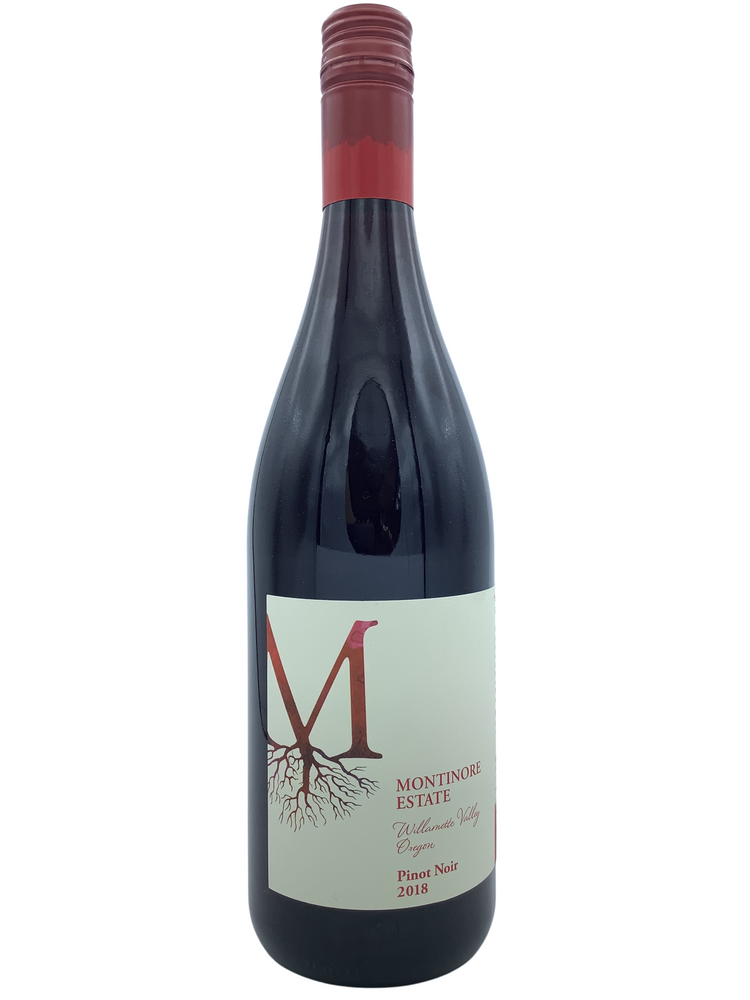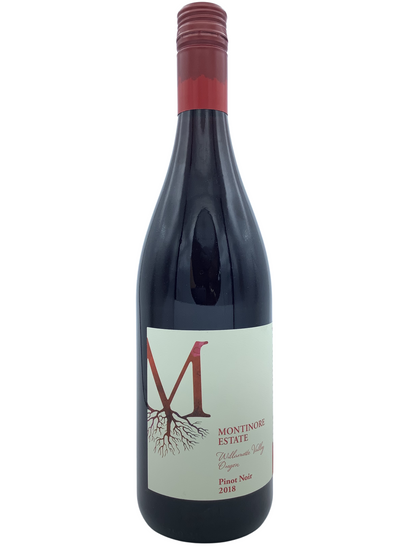Montinore "Red Cap" Estate Pinot Noir
- Regular price
- $22.99
- Regular price
-
$29.99 - Sale price
- $22.99
- Unit price
- per
Country/State Oregon
Region Willamette Valley
Subregion
Vineyard/Proprietary
Type Pinot Noir
Read About the WineGet to Know This Product
When Rudi Marchesi announced to a gathered audience of 200 guests that his vineyards both had phylloxera and he was going to combat the problem with biodynamics, there were gasps of astonishment. That was in 2009, at Oregon Pinot Camp, and I was in the audience.
There is a lot of ridiculous statements going on the above paragraph, the most astonishing being the fact that I got invited to Oregon Pinot Camp, I’ve never been invited back, and what Oregon Pinot Camp actually is. Then there is phylloxera and biodynamics. So much to explain, so we’ll do the easy stuff first.
Oregon Pinot Camp may sound a bit silly or super awesome, depending on your disposition and / or understanding. Is it a summer camp for winos? A spa for grapes? Or a super crunchy Northwestern science experiment? Well, it’s all of these and none – Oregon Pinot Camp is a prestigious three-day series of seminars put on by some of Willamette Valley’s top wineries for people in the wine trade. You drink a massive amount of amazing wine and eat really great food. In copious quantities. All of it, all at once. There are reasons you may not be invited back.
Moving on. Phylloxera is a vine louse, a little bug, that since the middle of the 19th century has eaten all the grape vines in the world. Yep, all of them. And there is no cure. The only reason we still have wine is because American species of vines are resistant to the louse, and we plant those, then glue French or Italian or Spanish varieties on top through a method called grafting. I’m not lying. This is true.
Biodynamics is a theory of, well, life, but in this instance of vineyard management, where you treat the vineyard and everything that is in and around it as a living organism. To work the metaphor - If something makes the organism “ill” you don’t slice off its arm to get rid of the infection. You instead use biodiversity via things like crystals and cow horns and bees, and “tea mixtures” to bring the entire organism back into balance. Sound wacky?
Well, back in 2009, one of the reasons the audience gasped, is that biodynamics was considered more than a couple bottles short of a full case in terms of a vineyard management. But the smiling, When Rudi Marchesi announced to a gathered audience of 200 guests that his vineyards both had phylloxera and he was going to combat the problem with biodynamics, there were gasps of astonishment. That was in 2009, at Oregon Pinot Camp, and I was in the audience.
There is a lot of ridiculous statements going on the above paragraph, the most astonishing being the fact that I got invited to Oregon Pinot Camp, I’ve never been invited back, and what Oregon Pinot Camp actually is. Then there is phylloxera and biodynamics. So much to explain, so we’ll do the easy stuff first.
Oregon Pinot Camp may sound a bit silly or super awesome, depending on your disposition and / or understanding. Is it a summer camp for winos? A spa for grapes? Or a super crunchy Northwestern science experiment? Well, it’s all of these and none – Oregon Pinot Camp is a prestigious three-day series of seminars put on by some of Willamette Valley’s top wineries for people in the wine trade. You drink a massive amount of amazing wine and eat really great food. In copious quantities. All of it, all at once. There are reasons you may not be invited back.
Moving on. Phylloxera is a vine louse, a little bug, that since the middle of the 19th century has eaten all the grape vines in the world. Yep, all of them. And there is no cure. The only reason we still have wine is because American species of vines are resistant to the louse, and we plant those, then glue French or Italian or Spanish varieties on top through a method called grafting. I’m not lying. This is true.
Biodynamics is a theory of, well, life, but in this instance of vineyard management, where you treat the vineyard and everything that is in and around it as a living organism. To work the metaphor - If something makes the organism “ill” you don’t slice off its arm to get rid of the infection. You instead use biodiversity via things like crystals and cow horns and bees, and “tea mixtures” to bring the entire organism back into balance. Sound wacky?
Well, back in 2009, one of the reasons the audience gasped, is that biodynamics was considered more than a couple bottles short of a full case in terms of a vineyard management. But the smiling, joie de vivre, Pinot Noir lover and winemaker thought it was the best path. No chemical treatments, only tender loving care. And astonishingly, it worked. You can look it up – Montinore Estate is now one of the largest producers of biodynamic grapes in the country. And gosh darn it, pseudoscience or not, this is darn delicious drinking Pinot:
Bright strawberries, pomegranate, orange zest, and fruit spices jump from the glass in a lively expression of beautiful Willamette Valley Pinot Noir. The palate has tension and vibrancy too it, while still being supple and smooth, rounded and drawing out the fruit character consistent with the aromas on the nose. Its juicy drinking fun. The finish is long and mineral. While you may not believe in biodynamics (or even organics) this wine might just change your opinion. I’m sure Rudi would invite you to keep drinking until you agree! Pinot Noir lover and winemaker thought it was the best path. No chemical treatments, only tender loving care. And astonishingly, it worked. You can look it up – Montinore Estate is now one of the largest producers of biodynamic grapes in the country. And gosh darn it, pseudoscience or not, this is darn delicious drinking Pinot:
Bright strawberries, pomegranate, orange zest, and fruit spices jump from the glass in a lively expression of beautiful Willamette Valley Pinot Noir. The palate has tension and vibrancy too it, while still being supple and smooth, rounded and drawing out the fruit character consistent with the aromas on the nose. Its juicy drinking fun. The finish is long and mineral. While you may not believe in biodynamics (or even organics) this wine might just change your opinion. I’m sure Rudi would invite you to keep drinking until you agree!


